Researchers discovered a well-preserved dinosaur tail trapped in ancient amber, providing valuable insights into lives of these creatures.
Recently, scientists made an amazing discovery that sheds new light on dinosaurs.
In a piece of amber dating back over 99 million years, an exceptionally well-preserved dinosaur tail was uncovered.
This finding offers fascinating insights into the appearance and evolution of these ancient creatures.
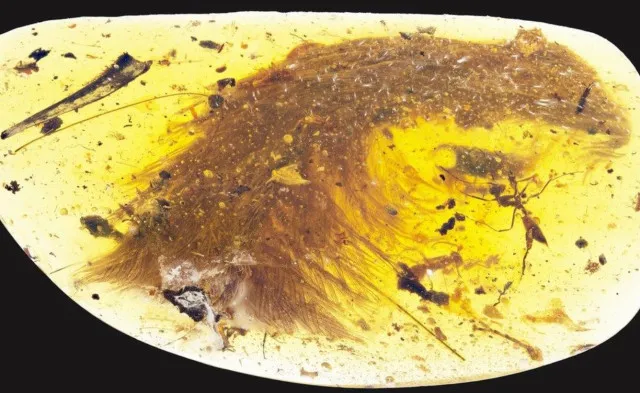
Researchers make incredible find of dinosaur tail that well-preserved in ancient amber
The amber containing the dinosaur tail was found in Kachin State, Myanmar.
What makes this discovery truly remarkable is the dense covering of feathers on the tail, a feature visible even to the naked eye.
Alongside the feathers, other soft tissues such as muscle, ligaments, and skin were also remarkably preserved within the amber.
“[The] plumage structure directly informs the evolutionary developmental pathway of feathers.
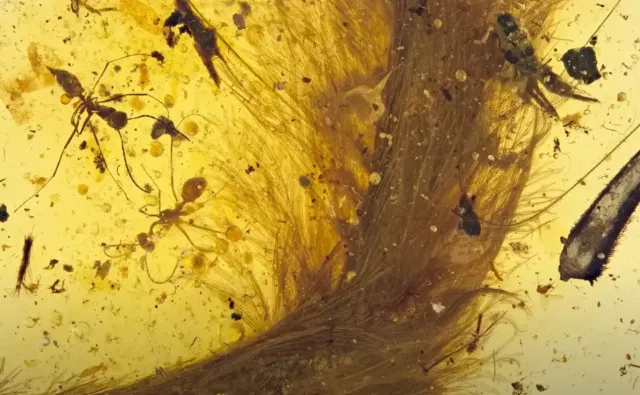
“This specimen provides an opportunity to document pristine feathers in direct association with a putative juvenile coelurosaur,
preserving fine morphological details, including the spatial arrangement of follicles and feathers on the body, and micrometer-scale features of the plumage.”
Significant meanings of this incredible discovery
This discovery is significant because it provides valuable information about the evolutionary development of feathers.
The plumage structure observed in the tail offers insights into how feathers evolved over time.
By studying this specimen, researchers can document pristine feathers alongside a juvenile coelurosaur.
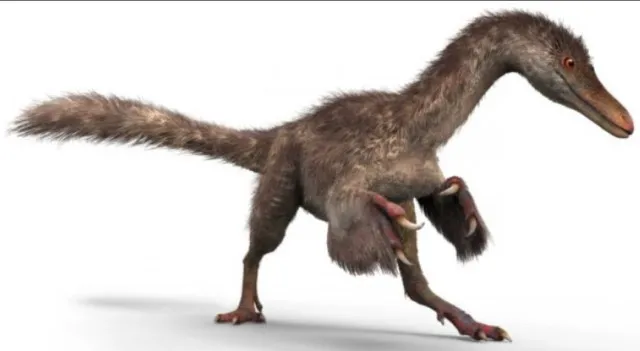
They can capture fine details, such as the arrangement of follicles and feathers on the body.
Additionally, they can analyze the micrometer-scale features of the plumage.
This finding builds upon previous discoveries of feathers in preserved dinosaur remains.
Experts previously found well-preserved wings in amber
In a separate study, wings with feathers were also found preserved in amber.
These findings contribute to our understanding of the plumage types associated with ancient birds.
The study revealed: “The extremely small size and osteological development of the wings, combined with their digit proportions,
strongly suggests that the remains represent precocial hatchlings of enantiornithine birds.
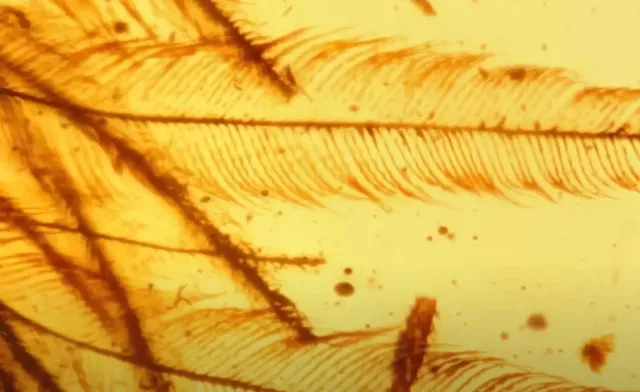
“These specimens demonstrate that the plumage types associated with modern birds were present within single individuals of Enantiornithes by the Cenomanian (99 million years ago),
providing insights into plumage arrangement and microstructure alongside immature skeletal remains.
“This finding brings new detail to our understanding of infrequently preserved juveniles, including the first concrete examples of follicles, feather tracts, and apteria in Cretaceous avialans.”
They also reveal how these types were present within individual dinosaurs during the mid-Cretaceous period.
Researchers shared opinions on the discovery
The lead researcher of the study, Chinese paleontologist Lida Xing, expressed the significance of this discovery.
He noted that the specimen in the amber was likely a theropod, a type of dinosaur, and not a plant as initially thought.
This find underscores the importance of preserving such specimens for scientific study and understanding.
Xing told CNN: “I realized that the content was a vertebrate, probably theropod, rather than any plant.
“I was not sure that (the trader) really understood how important this specimen was, but he did not raise the price.”
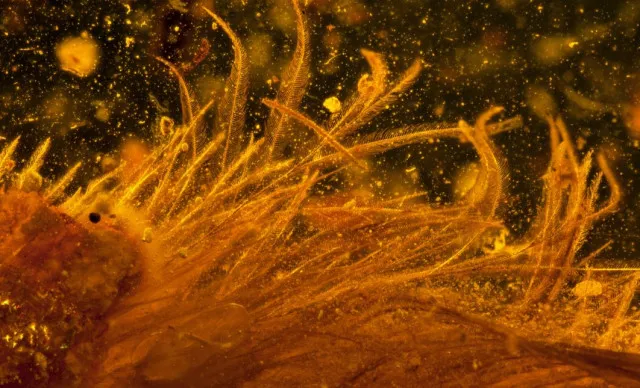
Co-author of the paper, Ryan McKellar, a paleontologist at the Royal Saskatchewan Museum in Canada, described this discovery as a once-in-a-lifetime find.
Ryan McKellar said: “It’s a once-in-a-lifetime find. The finest details are visible and in three dimensions.
“The more we see these feathered dinosaurs and how widespread the feathers are, things like a scaly velociraptor seem less and less likely and they’ve become a lot more bird like in the overall view.
“They’re not quite the Godzilla-style scaly monsters we once thought.”
The level of detail visible in the amber allows researchers to examine the feathered dinosaur in three dimensions.
This provides a clearer picture of what these ancient creatures looked like.
The presence of feathers on these dinosaurs challenges previous notions of them being scaly monsters like Godzilla.
Instead, these findings suggest that dinosaurs were more bird-like in appearance, with widespread feather coverage.